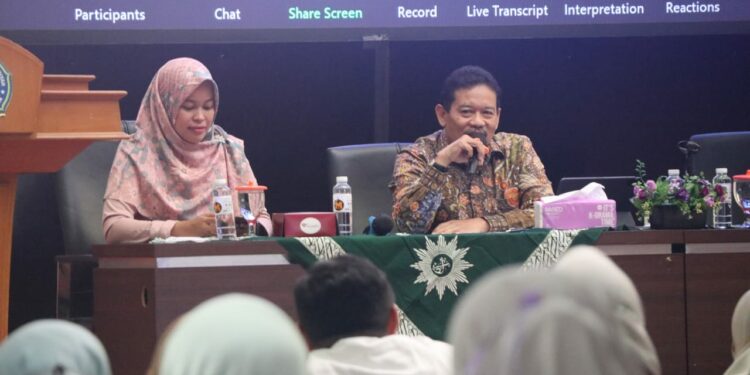MUHAMMADIYAH.OR.ID, BANTUL – Muhammadiyah education has currently concerned with five critical issues, according to the Chair of the Muhammadiyah Council for Primary, Secondary, and Non-Formal Education Didik Suhardi.
First, digital changes urge Muhammadiyah schools to undertake digital transformation. This changing era requires schools to be responsive and adaptive. To confront the challenges, the Chair of the Muhammadiyah Council for Primary, Secondary, and Non-Formal Education is developing EduMu, a digital learning accelerator.
The EduMu is a digital application by Muhammadiyah that enables schools, teachers, parents, and students to input and access school and academic information directly.
Second, Muhammadiyah schools should concentrate on education quality assurance by fostering the potential of their human resources by sending them to pursue their higher education in the Muhammadiyah-‘Aisyiyah Higher Education institutions.
Therefore, the Muhammadiyah Council for Primary, Secondary, and Non-Formal Education is now attempting to collaborate with Muhammadiyah-‘Aisyiyah Higher Education institutions to develop human resources.
Third, it is necessary to adjust the curriculum of Islam, Muhammadiyah Teachings, and the Arabic Language. As the basic knowledge of Muhammadiyah students, the teaching should be enjoyable, engaging, and delightful.
“Fourth, Muhammadiyah school acceleration should be another focus to increase public trust to Muhammadiyah schools,” said Didik in the Enlightening Dialogue and Mental Revolution in Bantul on Thursday (8/6).
Fifth, character building may not be eliminated from Muhammadiyah schools to make them excellent and progressive.
Indeed, Muhammadiyah schools should be inclusive learning places. They have to accept students regardless of thier backgrounds. The idea aligns with the spirit of Muhammadiyah.












Discussion about this post